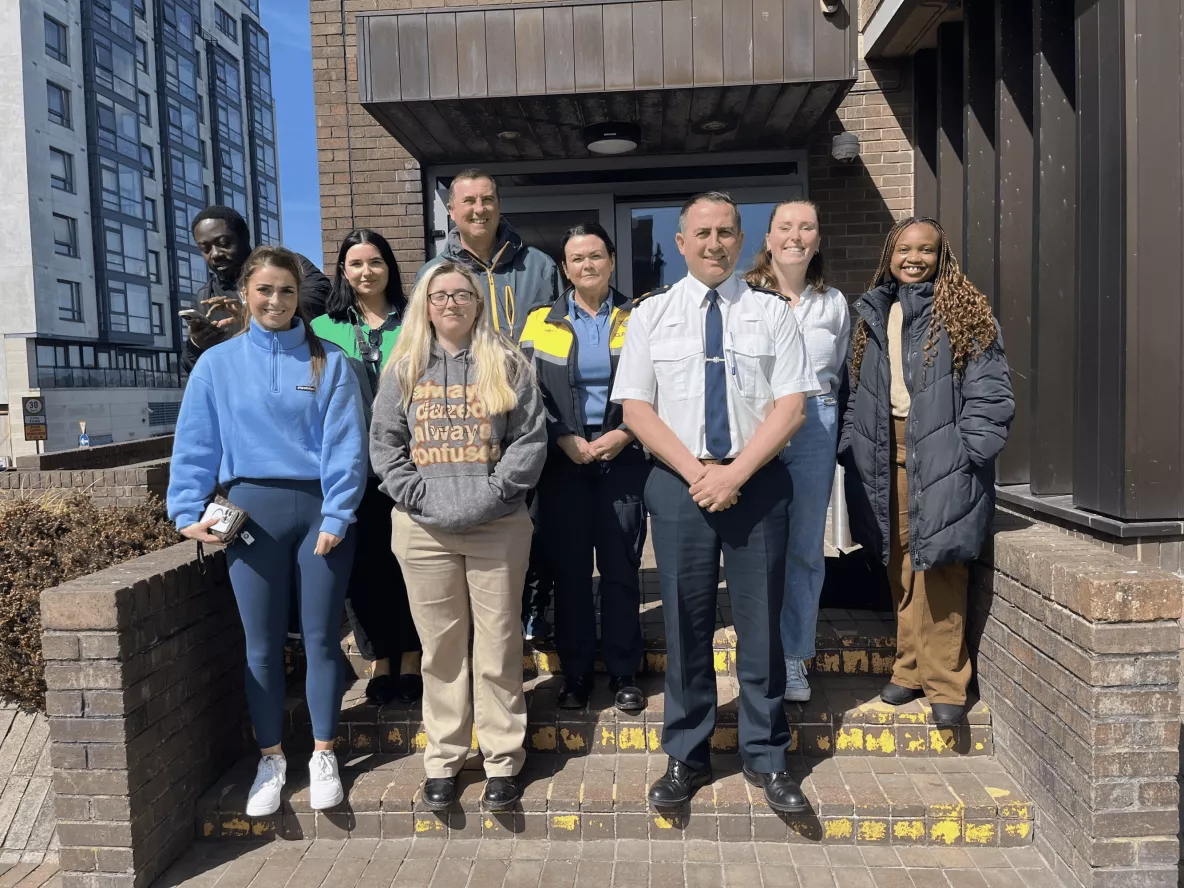

On Monday 22 April LLM/MA in Human Rights in Criminal Justice students visited Henry Street Garda Station. The event was organised by Course Director Dr Ger Coffey, Associate Professor, School of Law. This interactive active/experiential learning event included a briefing on the legislative functions of An Garda Síochána, the reception area, detention cells, interview rooms, Automated Fingerprint Identification System (AFIS), solicitor consultation room, medical consultation room, evidensier (intoxilyzer testing) room, and exercise yard for suspects detained in custody.
Members of An Garda Síochána briefed students on aspects of their work including the levels of specialised training for interviewing suspects in accordance with the Garda Síochána Interview Model (GSIM), harm reduction and safeguards policies for vulnerable persons through inter-agency collaborations, and the Garda Victims Liaison Office (GVLO). Students also received a briefing from members of the Armed Support Unit (ASU) on their various roles and responsibilities and were shown the personal equipment carried by members, in addition to the in-vehicle equipment. ASU members briefed students on their specialised training (including tactical and qualifications on administering medical aid), use of reasonable force (using non-lethal and lethal resources) commensurate with the levels of threat posed by suspects, effecting a lawful entry to premises to execute search warrants in furtherance of ongoing investigations into serious crime, and generally responding to firearms and critical incidents in support of the public and Garda colleagues. The imperative of human rights focused policing, transparency and accountability in compliance with the Garda Decision Making Model (GDMM) were emphasised throughout the interactive visit
We are very grateful to members of An Garda Síochána at Henry Street Garda Station for providing this active learning experience for our students. This experiential learning served to remove discussion from the abstract in academic seminars which facilitated students to gain a deep and flexible understanding with valuable insights into the practicalities in policing contemporary society. This in turn served to bridge the pedagogical gap between academic theory and the practicalities of human rights focused policing.